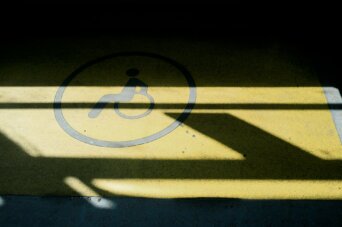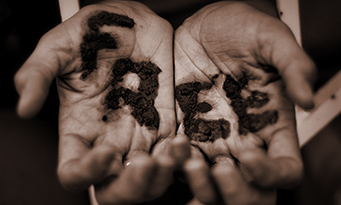- About
- Topics
- Picks
- Audio
- Story
- In-Depth
- Opinion
- News
- Donate
- Signup for our newsletterOur Editors' Best Picks.Send
Read, Debate: Engage.
| topic: | Human Rights |
|---|---|
| located: | India |
| editor: | Tish Sanghera |
2021 has been one of the most challenging in India’s recent history: gripped by a deadly second wave of COVID-19, the year began with chaos, tragedy and loss for what seemed like every household. Images and messages of people struggling to secure hospital beds, oxygen cylinders and funeral services for their loved ones were unrelenting for weeks.
However, what remained largely unrecognised in public attention as the country began to recover and focus on vaccination was the struggle of the the 70 million persons with disabilities (PWD) living in India.
Even before the second wave plunged the country into imminent danger, many PWD were struggling under one of the world’s strictest lockdowns, which isolated this group even more than usual. It's hard to imagine the daily tormenting fear of knowing you have a compromised immune system and should not be around others, but that you also rely on others to eat, bathe and sleep?
Vaccination could have been a lifeline for many people living with disabilities if it had been offered to them on a priority basis. This is because many PWD require specific support services whose nature compromise the various safety norms prescribed for protection against COVID-19, according to the International Disability Alliance.
So as the highly transmissible and infectious Delta variant spread, disability rights activists were shocked to find that disabled persons and their carers were not granted priority access for the COVID-19 vaccine along with government staff and frontline workers.
This exclusion of persons with disabilities from the priority vaccination plan was disappointing for many and led Meenakshi Balasubramanian from the Centre for Promotion of Social Justice to file a legal petition before the high court. “Unless and until vaccination is prioritised it is unlikely that [persons with disabilities] will move out of our socio-economic and health crisis, which will lead to further disability," she said in her petition.
At the end of September, the Union Health Ministry finally mandated at-home vaccination for “differently-abled people and those with restricted access.” It was a welcome move mirroring strategies in countries like Canada, the UAE and Chile. Many activists have also pointed to India’s incredible performance in the last national election, when officials set up a special voting booth for just one resident living in the remote state of Arunachal Pradesh to ensure they could cast their vote. This shows that when the will is there, inclusivity can be achieved.
Indeed, logistics is not the issue. India’s national vaccination campaigns have in the past garnered much praise and attention. Around 150 million children were vaccinated against Polio between January and April of this year - a remarkable feat for a developing country of India’s size. Instead the issue is unfortunately of respect and compassion. Last month, for example, the Civil Aviation Ministry asked airlines to reserve the front seats of planes for Members of Parliaments, without thinking of the impact on wheelchair users and others with disabilities.
As this year’s theme for the International Day of Persons with Disabilities references, instances like this and the slacking response to the pandemic overall, can only be avoided by working on “greater leadership and participation of persons with disabilities toward an inclusive, accessible and sustainable post-COVID 19 world.”
Photo by Nguyen Minh

